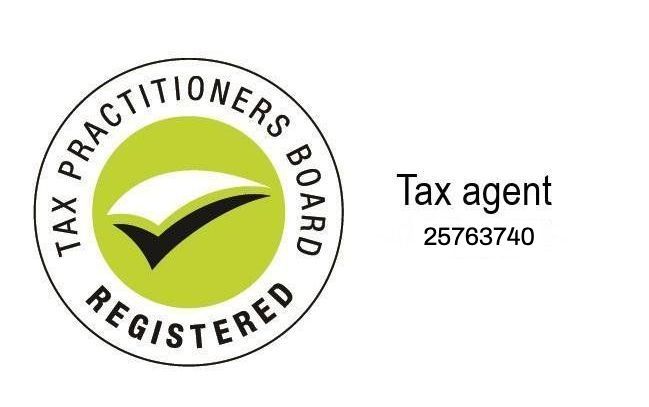5 ways technology has changed small business bookkeeping
Vania Wang • October 8, 2020
5 ways technology has changed small business bookkeeping
Small business accounting has rapidly changed over the past decade thanks to the exponential development in technology. Access to advanced software that can carry out complex functions and interconnected technology has made bookkeeping and accounting easier, efficient and accessible. Organising financial data, analysing it and measuring your business progress has never been easier.
Here are 5 ways technology has changed small business bookkeeping.
Cloud accounting
The advent of cloud-based accounting systems has streamlined bookkeeping. You no longer have to install accounting software on your computer. Simply sign up and begin bookkeeping.
Today’s cloud accounting programmes boast an array of features including payroll, collection and the ability to connect your bank accounts. What’s more, these programmes are designed for efficiency and productivity whilst adhering to all applicable bookkeeping and accounting guidelines.
Mobile accounting
Cloud computing and virtual technology have transformed the way bookkeeping is done. There are a range of mobile apps for accounting functions. Here are some of the tasks you can handle using your mobile device:
• Capture receipts
• Create and send invoices
• Gather signatures
• Create expense claims
Your accountant does not have to visit your office to access the records. No matter the time of the day or where they are, they can access the data instantly. Physical location is no longer a barrier. Accounting and bookkeeping has gone truly mobile!
Real time updates
Business reporting is an important part of any business. It helps in making important decisions and aids in auditing aspects of operating a business. However, given the complexity of bookkeeping and accounting
processes, reports may not be available readily.
However, all that has changed with technology. Today’s bookkeeping platforms boast real-time reporting and data updates. When you receive a payment, your bank notifies the bookkeeper (via email, text message or even online banking), and the payment is recorded. The same holds true whether you make a sale or accrue an expense.
Streamlined processes
Bookkeeping is no more complex and involved process of the past. Integration between apps has streamlined the entire bookkeeping process. Integration with the bank gets rid of chasing the bank for the reconciliation process. By integrating payroll apps with the accounting software, you can save a lot of time and double-work.
Improved efficiency and security
Virtual bookkeeping makes things easier and effective for businesses. The virtual setup frees you up of hosting and safekeeping duties. The data, accounts and the information are easily accessible to the right people and safe from loss, theft or unauthorised modifications/changes.
Delegation, checks and reporting have become a lot more efficient and optimised. Numbers and figures are less prone to errors, mistakes or manipulation.
Conclusion
The rapid development in technologies has changed the way businesses do bookkeeping and accounting, and that’s an undeniable fact. There are many other benefits of virtual accounting and bookkeeping. Tax time becomes stress-free when your records are efficiently organised. Not to mention the money you save by getting rid of double-work and errors.

By Vania Wang
•
January 27, 2025
As a medical professional, your practice isn’t just a business, it’s a platform to provide care, build relationships, and make a difference. Scaling your practice to meet growing demand is exciting, but it also comes with financial challenges. Whether you’re expanding your team, upgrading equipment, or opening a second location, a solid financial strategy is key to sustainable growth.

By Vania Wang
•
January 14, 2025
One of our clients, a cardiologist, came to us feeling frustrated. They were earning a strong income and investing regularly, but their wealth wasn’t growing as fast as they’d hoped. After reviewing their situation, we found several areas for improvement. Their investments were held in their own name, which meant they were paying taxes at the top marginal rate. They were also missing out on key deductions and weren’t using their superannuation accounts to their full potential. We worked together to restructure their finances. By moving their investments into a family trust, they could distribute income to family members on lower tax rates. We also restructured their loans to reduce interest payments, freeing up cash flow for other investments. One of their properties was operating at a loss, but we used negative gearing to offset their taxable income, saving them thousands. Finally, we optimised both their and their spouse’s super accounts, taking advantage of lower tax rates to build long-term wealth. The results were immediate. They now save $10K annually in taxes and have better cash flow, allowing them to invest more effectively. Their assets are also insulated from potential litigation, giving them peace of mind about the future. This is a perfect example of how the right advice can make a world of difference. If you’re feeling stuck or unsure about your financial progress, a specialist accountant can help you unlock new opportunities and achieve your goals faster. You’ve worked hard for your success, it’s time your finances reflected that.

By Vania Wang
•
November 11, 2024
When you’re running a business, having insurance in place often feels like a safety net. You’ve checked the box, paid the premiums, and you can breathe a sigh of relief. But are you truly covered? Many business owners believe they’re protected, only to find gaps in their coverage when it’s too late. It’s not uncommon to assume you’re safeguarded, but the reality is that insurance and asset protection strategies need regular review, especially as your business and personal circumstances change.

By Vania Wang
•
November 1, 2024
You’ve worked hard to build wealth and provide for your family. But when it comes to passing that wealth on, are you aware of the potential tax implications? While Australia doesn’t have a direct inheritance tax, that doesn’t mean your beneficiaries are completely off the hook. There are other taxes that can come into play, especially when it comes to inherited assets or superannuation.

By Vania Wang
•
October 1, 2024
Discover why running a business feels harder than ever and how to regain control of your finances. In this blog, we explore common challenges faced by business owners, from cash flow issues to lost focus, and offer practical solutions to turn things around. Learn how expert financial guidance from THN & Samios Partners can help you overcome obstacles and get back on track.
Contact Info
Address:
Suite 2, Level 29, 259 George St Sydney NSW 2000
Phone:
+61 2 9660 8555
Trading Hours
Monday to Friday 9:30am – 4:00pm
Appointments outside these times are available only by prior
arrangement.
© 2025
THN & Samios Partners Pty Ltd







